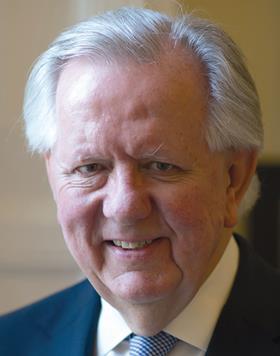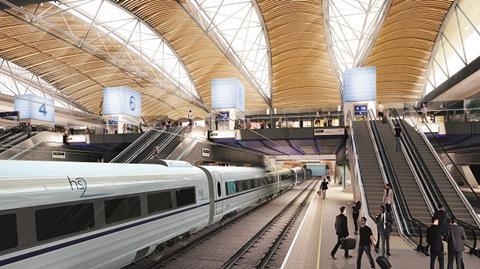When Theresa May was first elected Conservative Party leader in 2016 she made a speech that set a new tone for her party.

She talked about a fundamentally unequal society in which the rich have got decidedly richer while those at the bottom of the ladder have seen little or no improvement in their living standards. It is a sentiment shared across the political divide.
Quantitative easing is partly to blame by increasing asset prices so that those who own assets find them worth even more, while those without gain no such benefit. In short, the rich have got richer while the poor remain poor.
If we accept as I believe we have to that this is a huge problem for our country, then something must be done. And that’s where the problem lies, because we know beyond doubt that you don’t make the poor richer by making the rich poorer. If only it were that easy. It has of course been tried. It has underpinned all the world’s great revolutionary uprisings. And it has always failed.
So if the politics of envy don’t work, what else can a government do? Mrs May originally suggested forcing companies to have workers on boards, an idea that was quietly dropped. She also talked about forcing companies to publish the gaps between their highest-paid staff and the lowest, an idea that was dead almost as soon as it was articulated.
Feeble statement
The former Department of Trade and Industry – which has been through more name changes than I’ve had hot dinners – is now called the Department for Business, Energy and Industrial Strategy. “We are building an economy that works for everyone,” says its website, “so there are great places in every part of the UK for people to work and for business to invest, innovate and grow.” But this is feeble stuff.
That is why the National Infrastructure Commission’s (NIC’s) recent monitoring report on how well government is tackling the infrastructure challenge is so relevant. If we really want to narrow the gap between the well-off and those less fortunate the real key is infrastructure.
The point of HS2 is not just to run fast trains but to connect London, Birmingham and Manchester – and later the East Midlands, Leeds and Sheffield – in a way that allows faster economic growth in those parts of the country where housing, wages and living costs are substantially lower than in the capital. It is literally about spreading the nation’s wealth.
The same applies to the proposal to improve the link between Leeds and Manchester. It is risible that the so-called TransPennine Express takes an hour to complete the 40-mile journey between the two cities. The Lower Thames Crossing is urgently needed, but little progress has been made in delivering it.

At a time when this country is desperate to show the world we are open for business we can’t even decide where to put an extra runway.
The NIC report laments “a disappointing lack of pace in several areas”. NIC chairman Sir John Armitt says it is “hugely disappointing” that after two years there is no real progress either on Crossrail 2 or the Northern Powerhouse Rail projects. This is a tragic error of government. Infrastructure not only creates employment and skills but can also unlock latent potential that so many parts of the UK so clearly need.
The message must be loud and clear. The time for pussyfooting around these big projects is over. As Churchill so pithily put it, we need action this day.
Steve Norris is chairman of Soho Estates and senior adviser to BNP Paribas Real Estate






























No comments yet